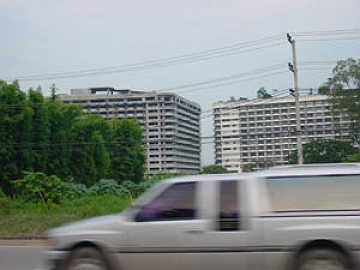| 5. Locally Based Capital: The Tantranon Family At the time when Finance Minister Tharin was igniting a fuse for the currency crisis in 1997 by spurring financial liberalization, and then being preoccupied with the post-crisis reconstruction work, Chiangmai was struck by an economic upheaval. The Tantranon family can be described as a typical locally-based Chiangmai business. The family owned and operated a department store. One member of the family served as mayor of Chiangmai for a decade from 1985. However, when a Bangkok-based department store operator opened the first of its local stores in Chiangmai in 1992, during the era of the bubble economy that began in the late 1980s, the Tantranon family could not even try to compete with it. Within just a few years, the family’s business interests ended up in the hands of a Bangkok-based group. Of the family’s extensive business operations, the real estate sector was hit hard by the economic crisis. As indicated by the small number of regional companies listed on the stock exchange, the business community gravitates toward the capital city following the pattern of the administration. There are no legal mechanisms to protect small-scale stores or local businesses. Particularly in open cities like Chiangmai, the law of the jungle, where “the large fish prey upon the small fish,” tends to prevail.
TAMADA Yoshifumi |
